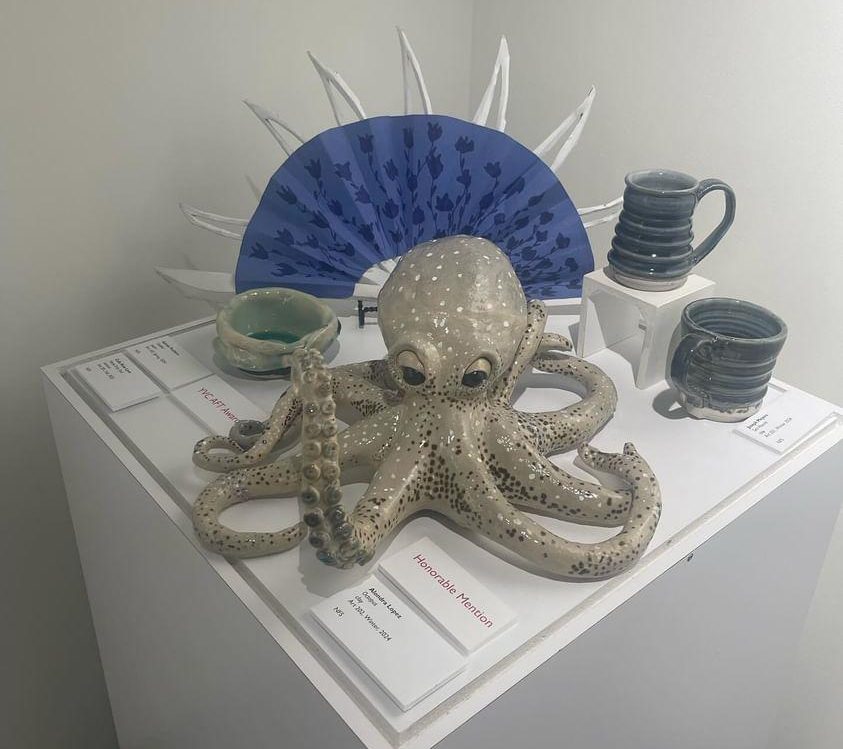Anyone who has loved an animal knows how emotionally beneficial it can be. Coming home to an excited dog, cuddling with a fuzzy cat or even watching a clumsy frog fumble at catching a worm. The joy of loving another being can oftentimes overpower the feelings of sadness, self-doubt or worry we all face throughout our lives. This is why, for people who experience these feelings and other negative feelings more regularly, emotional support animals (ESAs) can be incredibly helpful.
Many CWU students have ESAs on and off the campus. One student, freshman Alex Stevahn, spoke about her experience with her ESA, a German Shepard-Lab mix named Dahlia. Prior to moving to Ellensburg, Stevahn didn’t have an “official” ESA. Family dogs had served that purpose. However, when she did move, Stevahn said she “felt so lonely.” She continued: “For about the first month we lived here, I didn’t leave the house, I didn’t go anywhere. I didn’t have a job yet either. During that time my mental health was just absolutely tanked.”
Poor mental health, combined with the new loneliness of moving to a new town was what drove Stevahn to the animal shelter. At the shelter, Stevahn and Dahlia “just clicked.” Stevahn mentioned her therapist, whom she had been going to for quite some time, also entertained the idea of Stevahn getting an ESA. After Stevahn got Dahlia, she said her therapist “was completely supportive.” She continued “When I went and got Dahlia, she [my therapist] thought her demeanor was really good for what I needed.”
Briefly speaking about the services Dahlia provides for her, Stevahn said: “She hasn’t done any official training or anything; I got a note from my personal counselor for that, but whenever I cry she [Dahlia] gets very upset. So she’ll come up and she gets like up in my face, stares at me, and she licks me.” She continued, mentioning a kind of “deep pressure therapy” Dahlia provides by laying on top of Stevahn in moments of great anxiety.
Stevahn closed her comments with an incredibly touching thought. “I could not imagine where I would be now if I hadn’t gotten my dog. Like I said, when we first moved here and I lost my dog, I cried almost every morning, because my entire routine was disrupted. I was away from everyone that I loved, in a new place that I knew nothing about, I had nobody and I had literally nothing. Honestly, I don’t know how I would have gotten through that if I didn’t have some support system.” Now, with Dahlia, Stevahn feels that support.

Despite the legal protections offered to those with ESAs under the Americans with Disabilities Act, there are still ways one can be discriminated against. This is evident in the case of a former CWU student, and Ellensburg local, who wished to remain anonymous. His service animal is a 9-month-old cat he found under a car, and named Saskia. He didn’t initially expect this little kitten to become his ESA, but after talking with his therapist realized it would be both convenient and beneficial for him to take care of Saskia as such.
“I’ve taken care of animals all my life, basically,” he said. “I think that when I’m taking care of animals, when I have something to look out for, it makes me less impulsive and irritable.” He continued by saying that taking care of another life forces him to take a step back, and realize that the survival of a living, breathing creature is entirely dependent on him.
After getting his therapist to write a letter for Saskia to become licensed, he contacted his landlord about moving his new emotional support animal into his apartment. She responded with some concerns. He said: “She met with me and my roommates, and she basically was like ‘I legally can’t stop you from having this cat here, but I’m going to come and inspect the house with a blacklight every month’ and implied that if I had the cat in there, that she would just rip up the hardwood floors when we left and make me pay for it.”
While she, as a landlord, does legally have the right to inspect her property and make repairs if necessary, it is understandable why someone may feel uncomfortable having their home inspected with a blacklight on a monthly basis. “Your landlords aren’t supposed to question the decision at all, or push back,” the source said. “They’re supposed to say ‘Yeah, okay. If the cat causes damage, then we’ll deal with that later.’ But it’s not like a negotiation.”
ESAs are a touchy subject. Some believe they don’t help, others think they’re just a way to get your pets to live with you. Evidently, those who have ESAs feel they can bring one down to Earth when things feel far away. They can bring one back to their senses when spiraling in their mind. They can love unconditionally, even when you can’t love yourself.




